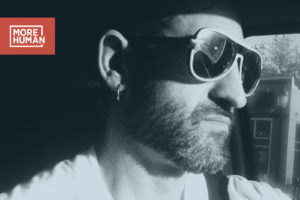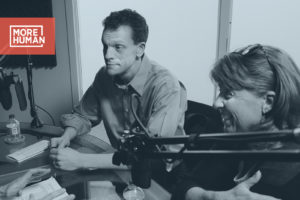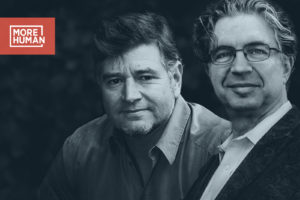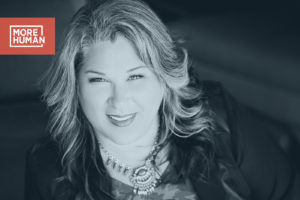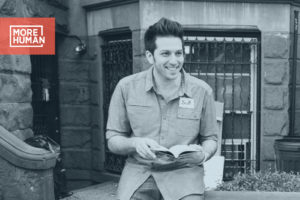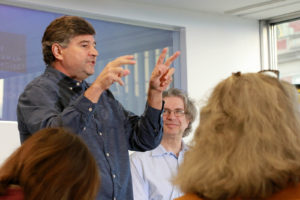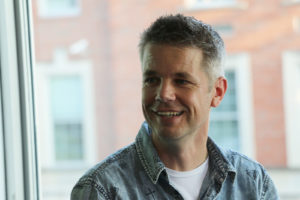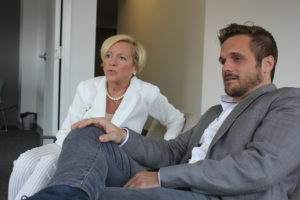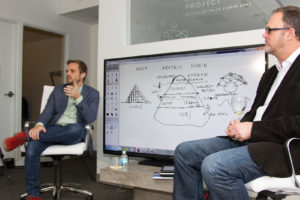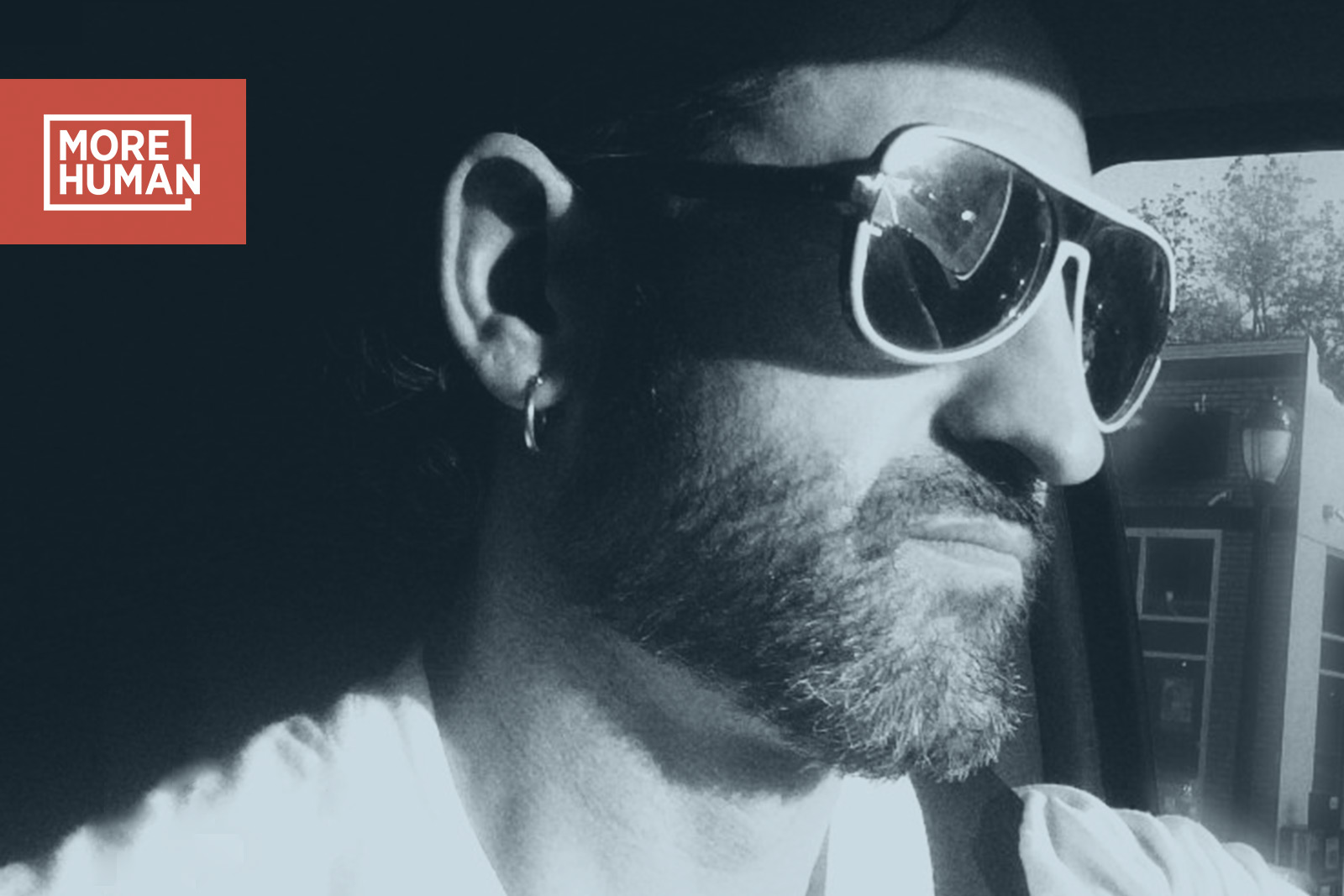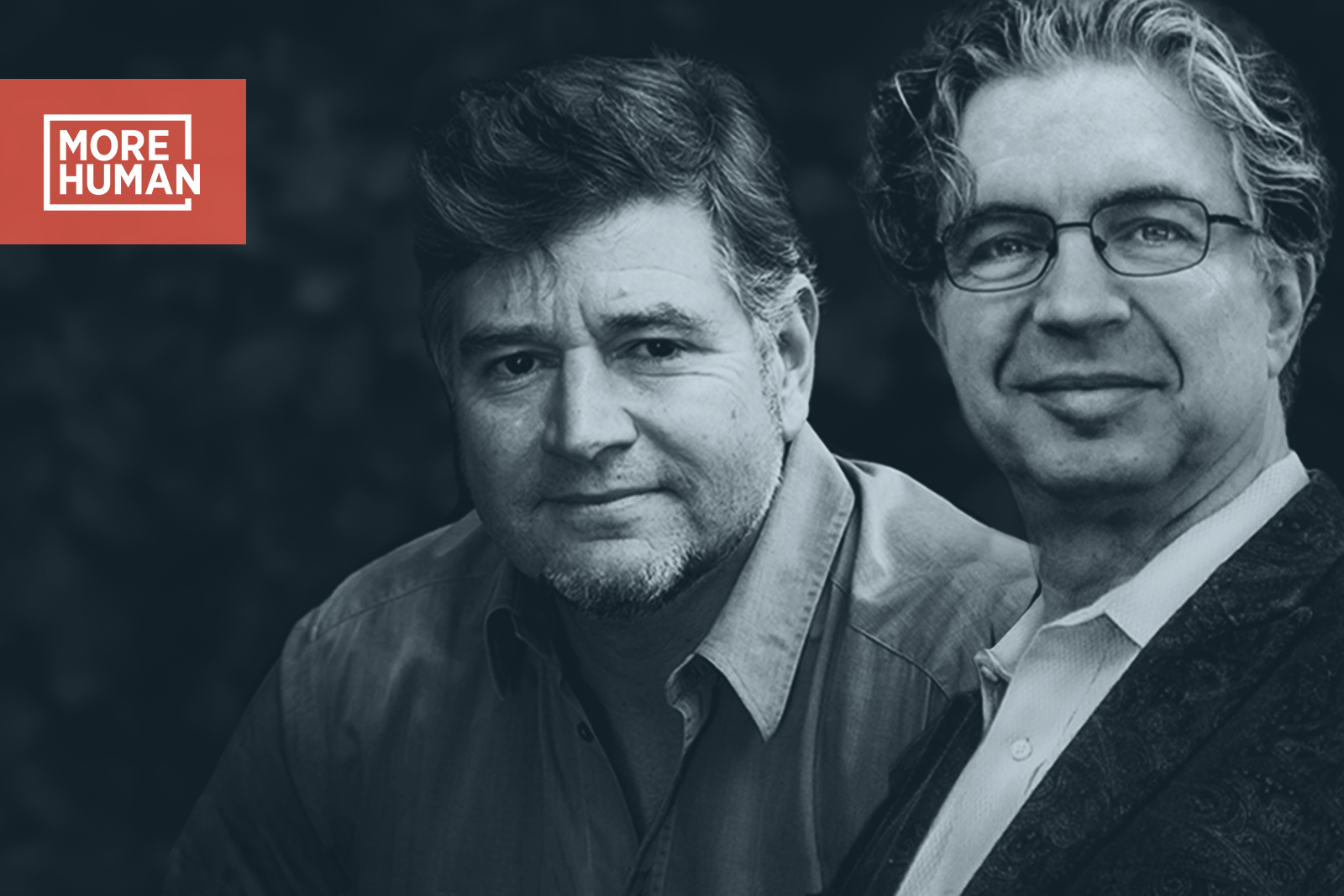You Don’t Run Your Race. It Runs You.
Just a few weeks after his father died, Dad sent me an email with a registration link for the GO! St. Louis Marathon.
It was January of 2005, and I had not really been training for a marathon or anything for that matter. But I think it was his tone that was compelling. It was along the lines of, “We must do this.”
Over the next few weeks, Dad and I met on Saturdays for our long run around Creve Coeur Lake. I do not remember the content of the conversations we had, but I know we logged as many hours with our jaws as we did with our legs. In retrospect, the actual language mattered little – especially during oxygen debt.
Example:
Dad: “So, I said, <inaudible> to the <inaudible mumble>.”
Me: “What’s that?”
Dad: “<inaudible> said what?”
On race day, the forecast was to be “unseasonably warm” with highs in the 80s as opposed to the 60s to which we had grown accustomed. I was only a couple of years removed from collegiate cross country and thought I, of course, would be dragging the old man around the town as he was ambled along overheated and in much need of my support.
During the race, Dad and I started strong. The pace felt easy like all of the training runs we had done. The conversation remained light and focused on nearby attractions – the arch, the brewery, the arch again. All was righteous. For a while anyway.
The first cramp hit me at mile 13 or so. I didn’t say anything. Just thought my quad had a funny feeling in it and kept running. It didn’t take long for me to realize this feeling had a great deal more permanence.
Then I noticed a change in Dad’s running gait. He was favoring once side and making an occasional wince. But both of us had too much pride to say much.
By mile 15, however, we fell completely silent except for some occasional grunts and painful, quick inhaling breaths as we both began the death march of locking leg muscles.

That day in April 2005 was not Dad’s first marathon. He had run the Chicago marathon in October 1996, the day after my high school cross country conference meet. My grandmother, his mom, had passed out in the heat. So Dad spent the hours before his first marathon at her side in a suburban Chicago hospital. He and my grandfather sat in stoic silence while IV fluids brought her back into consciousness. I never got a sense that there was any form of alarm or panic between those men – about really anything. We woke the next morning and Dad, then age 42, ran a 3:31 marathon.
By mile 18, I was ready to call it. The 4:30 pace group had passed us. I would say we were walk/running, but it was more like walk/limping. The day was getting hotter, and we started to climb the hill in front of the Moolah Theater. We were stumbling off to the side of the race course at each water stop trying to eat crackers, pretzels, anything that would stave off of the pain. We were done – physically and otherwise.
I thought about my Dad’s father, a ruddy sonuvabitch. He worked three physical labor jobs to support his family of six. I had never seen anything stop him from grinding out a task – not union disputes or age or hip replacement or life-threatening injury. I never witnessed him complain about working too hard or being short of money. Even in “retirement,” he worked harder than most – tending to a large vegetable garden with corn, beets, onions and tomatoes. When I imagine him today, he is covered in sweat and carrying two five gallon buckets of produce.
By mile 21, the campus of Saint Louis University offered some relief in the form of a new, softer surface, and it rejuvenated our spirits. We started to jog slowly into downtown, bracing with every step. We continued the terribly ugly grinding out of the last few miles.
Dad and I ended up finishing the damn thing under our collective willpower and dogged stupidity. We stood in the runner village, slightly teary eyed, and strained out smiles for post-race photos. I could see on his face the same disappointment I was feeling. It was not the day we had wanted to have. It was not our race.
There is, however, some poetry about it all. In reality, it was not meant to be our race – it never is. The western world is full of a prevailing wisdom that you can somehow wrest control over outcomes. If you happen to hold this belief, I entreat you to examine your delusion in light of scores of collective experiences.
The truth is you have no control. We don’t run the race. The race runs us. My father taught me the sacred nature of allowing the race to happen and making the most of whatever happens. The blow up we faced on our day in the sun was not our first or our last one. And that experience is a more fitting testament to my father’s character than I could have tried to arrange.
During the race, your politics, your beliefs and your words mean little. What counts is what your ass is willing to do.
This is what I have learned from the man: loving someone and loving yourself is being there – it matters not so much what you say or what you think ought to happen or how you think the world should change. It is showing up. It is making another human in this life understand he matters.
I do not live this principle. I am prone to self-centered behavior and narcissism. But I wake each day with another chance to let the race run me. And today I get the chance to run it the way he taught me – grinding it out no matter what happens.

